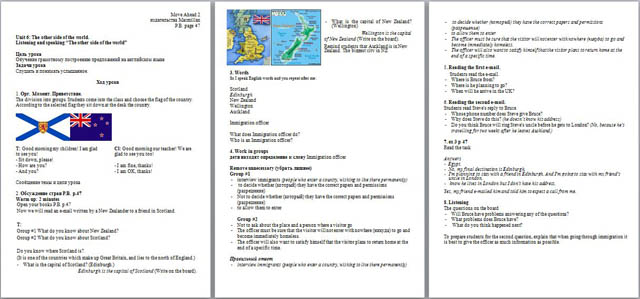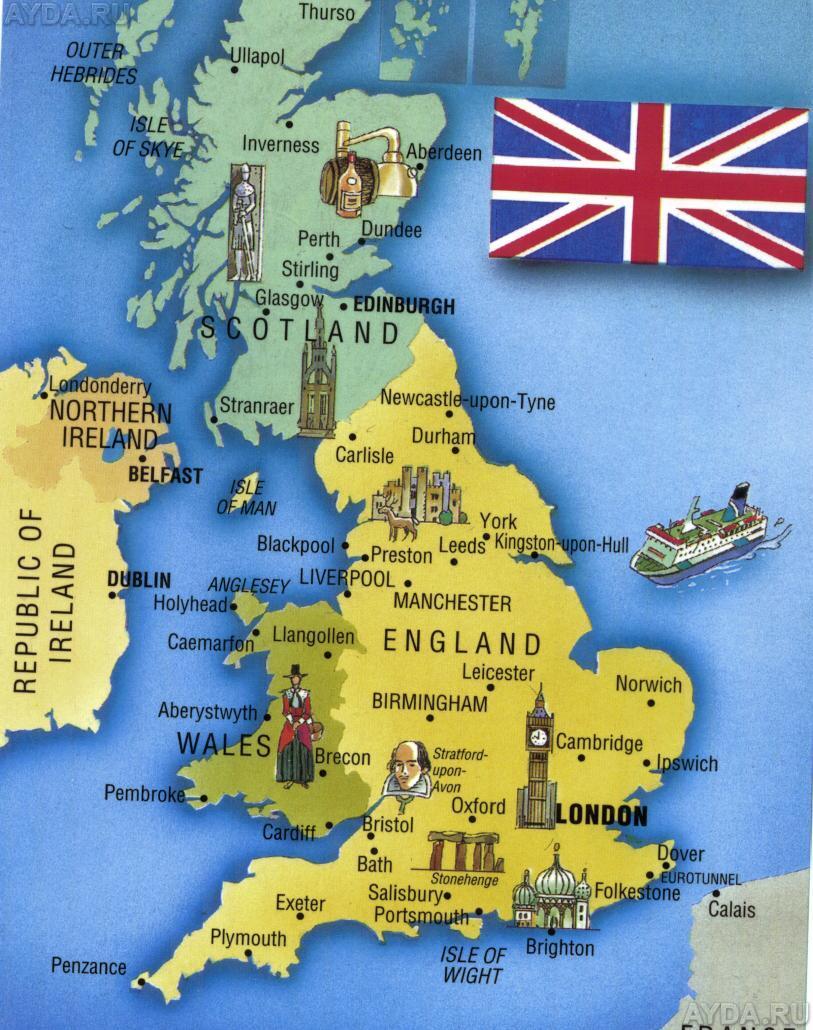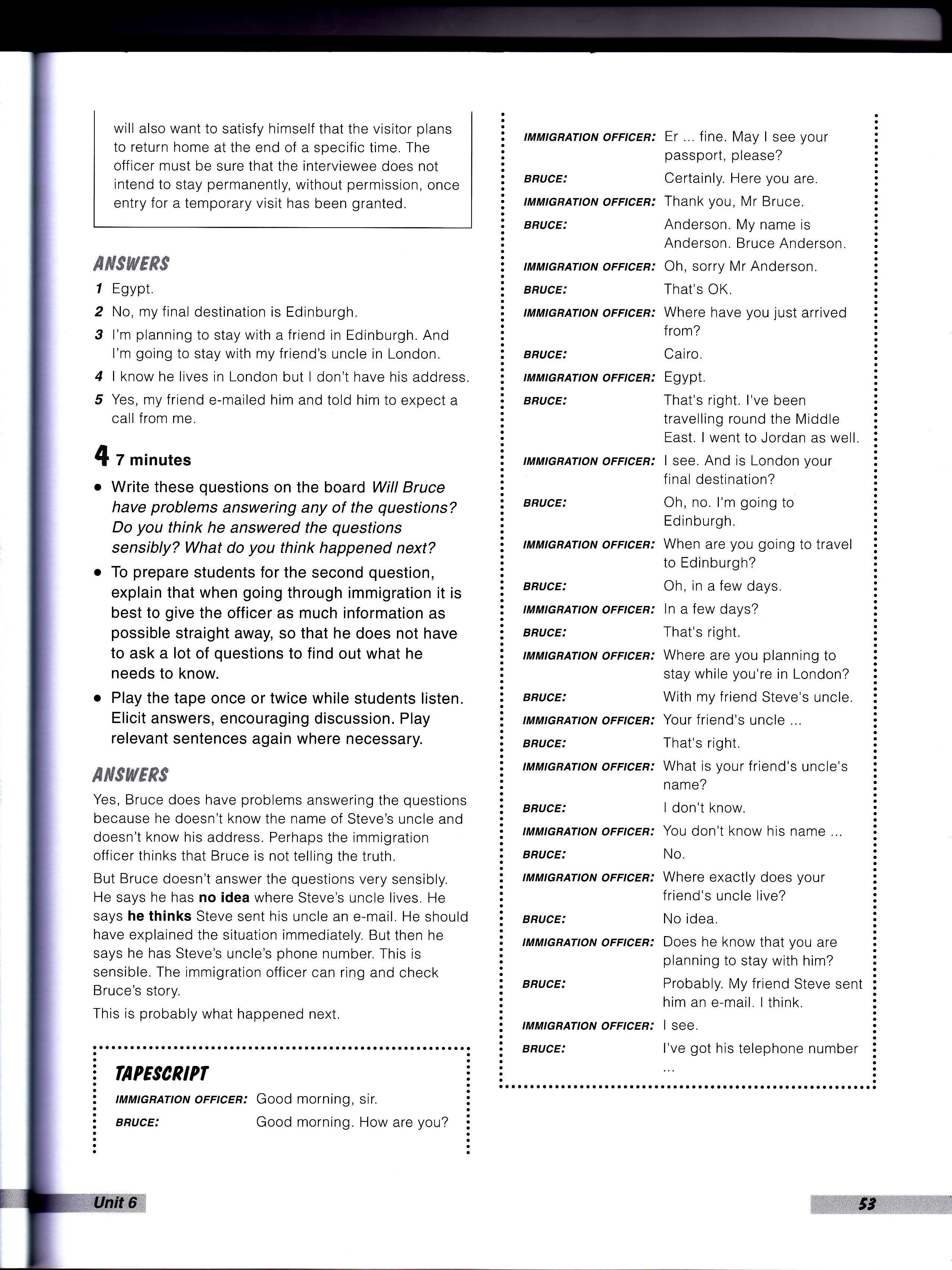Цель урока:
Обучение грамотному построению предложений на английском языке.
Задачи урока:
Слушать и понимать услышанное.
Ход урока.
1. Орг. Момент. Приветствие.
The division into groups. Students come into the class and choose the flag of the country. According to the selected flag they sit down at the desk the country.
T: Good morning my children! I am glad to see you!
- Sit down, please!
- How are you?
- And you?
Cl: Good morning our teacher! We are glad to see you too!
- I am fine, thanks!
- I am OK, thanks!
Сообщение темы и цели урока.
2. Обсуждение стран P.B. p.47
Warm up: 2 minutes
Open your books P.B. p.47
Now we will read an e-mail written by a New Zealander to a friend in Scotland.
T: Group #1 What do you know about New Zealand?
Group #2 What do you know about Scotland?
Do you know where Scotland is?.
(It is one of the countries which make up Great Britain, and lies to the north of England.)
What is the capital of Scotland? (Edinburgh.)
Edinburgh is the capital of Scotland (Write on the board).
What is the capital of New Zealand? (Wellington)
Wellington is the capital of New Zealand (Write on the board).
Remind students that Auckland is in New Zealand. The biggest city in NZ

3. Words.
So I speak English words and you repeat after me:
Scotland
Edinburgh
New Zealand
Wellington
Auckland
Immigration officer
What does Immigration officer do?
Who is an Immigration officer?
4. Work in groups.
дети находят определение к слову Immigration officer.
Правильный ответ
interview immigrants (people who enter a country, wishing to live there permanently)
to decide whether (который) they have the correct papers and permissions (разрешение)
to allow them to enter
The officer must be sure that the visitor will not enter with nowhere (никуда) to go and become immediately homeless.
The officer will also want to satisfy himself that the visitor plans to return home at the end of a specific time.
5. Reading the first e-mail.
Students read the e-mail.
Where is Bruce from?
Where is he planning to go?
When will he arrive in the UK?
6. Reading the second e-mail.
Students read Steve's reply to Bruce.
Whose phone number does Steve give Bruce?
Why does Steve do this? (he doesn’t know his address)
Do you think Bruce will ring Steve's uncle before he gets to London? (No, because he's travelling for two weeks after he leaves Auckland.)
Remove unnecessary (убрать лишнее)
Group #1
interview immigrants (people who enter a country, wishing to live there permanently)
to decide whether (который) they have the correct papers and permissions (разрешение)
Not to decide whether (который) they have the correct papers and permissions (разрешение)
to allow them to enter
Group #2
Not to ask about the place and a person where a visitor go
The officer must be sure that the visitor will not enter with nowhere (никуда) to go and become immediately homeless.
The officer will also want to satisfy himself that the visitor plans to return home at the end of a specific time.
Весь материал - в документе.

 Получите свидетельство
Получите свидетельство Вход
Вход






 hat is the capital of New Zealand? (Wellington)
hat is the capital of New Zealand? (Wellington)











 Разработка урока по английскому языку "The other side of the world" (1.47 MB)
Разработка урока по английскому языку "The other side of the world" (1.47 MB)
 0
0 250
250 40
40 Нравится
0
Нравится
0


